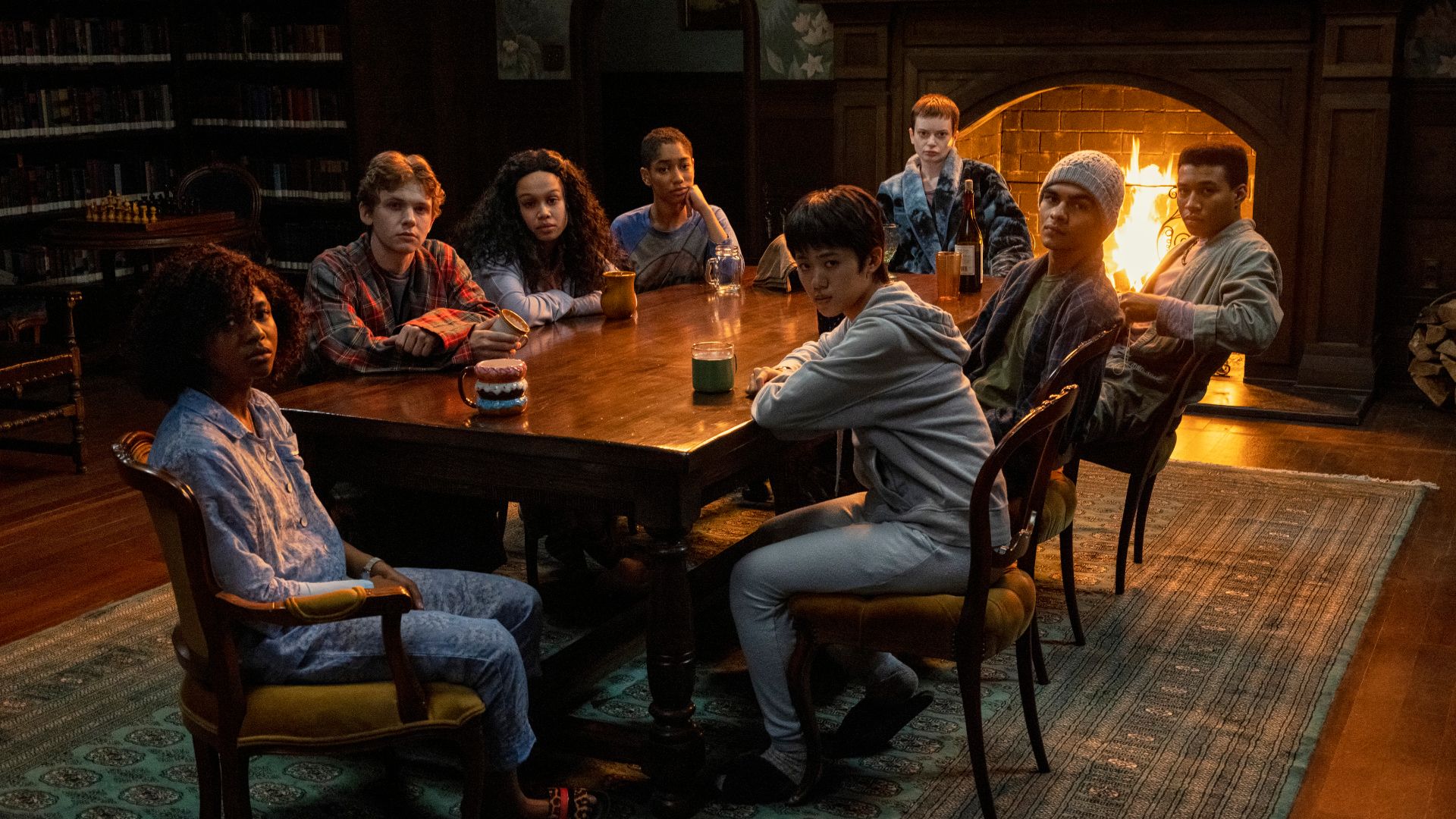GamesRadar+ Verdict
An episode about duality. Anya emerges a far more sympathetic figure, even if the Two Danas section – at a full 15 minutes – slightly outstays its welcome
Why you can trust GamesRadar+
Of all the characters introduced in episode one, Anya (Ruth Codd) made the strongest impression – though not for entirely positive reasons. Codd is a terrific actor and absolutely blistering in this role, but the character is bitter, spiteful, and almost unbearably aggressive. 'The Two Danas' explores this, both leaning into her vicious side and the deep well of pain that is driving her hostility and aggression.
First up, though, Ilonka is busy moving the plot forward. She's still settling into the hospice, but the story of Julia Jane – the girl who claimed that Brightcliffe had cured her – has stuck with her. First, she quizzes Dr. Stanton, who claims to barely remember her (hmm, not quite sure we believe her there) and then she tracks down Julia's patient records.
Ilonka is also experimenting with different holistic remedies in the hope that something will give her a fighting chance at beating her cancer. There are the stinky teas that we learn her late predecessor Rachel also experimented with, much to Anya's disgust. Perhaps more promising is the spring water that she collects from a nearby stream. While there she runs into a local woman, Shasta (Samantha Sloyan) who claims that Brightcliffe is at the center of what she calls a "healing vortex" and who seems obsessed with the fact that Ilonka's name means "light" in Greek. Shasta's own name, for what it's worth, means "teacher" in Sanskrit – never accuse of Mike Flanagan of subtlety.
Mainly, though, this is an episode that wants you to get to know Anya in all her messy glory. We discover that she, like Rachel and Ilonka, was once desperately searching for a cure to her illness before becoming embittered and angry. Her response to that has been to lash out at anyone who gets too close to her or who glimpses how deeply hurt she is.
This is an episode about duality and the competing impulses within Anya. As Kevin spells out at one point: "Part of you wants to punish her [Ilonka] for the part of you that believes it." That's made abundantly clear in the story that Anya tells at the Midnight Club, from which the episode takes its title. Dana is a talented young ballerina (played, of course, by Codd) who appears to have it all, but who feels unable to enjoy a regular life. She strikes an unwise deal with the devil and is split into two identical Danas, one of whom continues her dance career while the other who goes off clubbing and gets into sex and drink and drugs. The only problem is, they each feel what the other is doing and it's not long before they spiral into addiction and madness.
We don't know enough about Anya's life before the hospice to fully understand how this story fits with her conception of herself, but everyone in the Club can see that telling the tale leaves her emotionally vulnerable. It's not surprising that, when Sandra tries to reach out to her and be supportive, all she gets is a withering "fuck off!" in return. Still, Anya emerges a far more sympathetic figure than she was in 'The Final Chapter', even if the Two Danas section – at a full 15 minutes – slightly outstays its welcome.
Brightcliffe notes...

Amesh having a "before I die list” rather than a "bucket list" is a cute and funny detail – that term wasn't widely used until the late 90s/early 00s.
It's revealed that Spence has AIDS. Ilonka's reaction is well-meaning, but clumsy, causing Anya to fly off into another rage. It's a standout performance and a terrific showcase for Ruth Codd, even if the speech itself feels, perhaps, a little over-cooked.
OK, so this is pedantic, but as a Radiohead fan I'm going to have to question Kevin's reference to 'Exit Music (For A Film)'. That song was written specifically for Baz Luhrmann's Romeo + Juliet in 1996, before later finding a home on 1997's iconic OK Computer. So how the hell has Kevin heard it in 1995?! Ilonka fell ill in 1994 and was diagnosed as terminal nine months later. While the show is a little vague about the time period between then and her arrival at Brightcliffe, there's no way that it could be as late as 1996. So what gives? Is The Midnight Club set in some alternate reality where Thom Yorke penned and released that song a couple of years early (perhaps throwing the entire course of '90s indie rock off its axis)? Or is this evidence of some further temporal shenanigans afflicting Brightcliffe? Or is it simply a mistake?
Yeah, it's the latter, isn't it?
On the juke box
The music in the show seems to be going for a period-appropriate '90s indie pop vibe. Here are the tunes that pop up throughout the episode.
- Bush – 'Glycerine'
- Blind Melon – 'No Rain'
The Midnight Club is available on Netflix – keep with us for episodic reviews of Mike Flanagan's new show. For more viewing options, check out our list of the best Netflix shows available to watch right now.
More info
| Genre | Horror |


